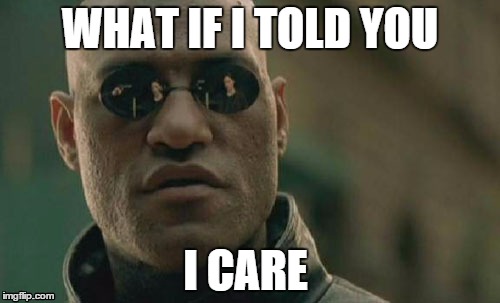I recently attended a conference for financial planners. There were several speakers. All were good. They all addressed what financial planners will need to do going forward in order to differentiate themselves and grow their business against a backdrop of fee compression and increased automation in the financial planning business. They all said that the “human touch” of caring, listening, and empathizing with clients is what sets human financial planners apart from the robots. Makes sense. Portfolio composition, allocation, and monitoring, while important, are becoming less so as investors move to lower-cost ETF’s. Having an ear to lend and understanding a client’s situation are opportunities for a financial planner to add value. The planner needs to listen and care.

How Do I Show That I Care?
This is good news for me. I believe I am a good listener, especially in one-on-one situations. I have a strong memory and I typically bring up something someone mentioned in a previous meeting when I meet them again – maybe to put them at ease, or maybe to bust their chops. I empathize well with people and people like to talk to me because of my skills in that area. So, based on what I heard during the conference, I am well-suited to be a good financial planner and grow my business.
The issue that I have is that it is difficult for a financial planner to convey that they care. Of course, an existing client can refer me to a new client on the basis that “I care”, but beyond an unsolicited referral, my options are limited. For instance, I am restricted in my ability to use customer testimonials on social media or in my advertising. The bodies that regulate my business don’t want me to cherrypick client referrals, so they effectively ban them. I suppose I could put something like “I care about you and your money!” or “I am customer-focused!” on my website, but that sounds so hokey. How about, “You can trust me with your finances!” Eech!
Demonstrate, Don’t State!
I think the extent to which someone cares is demonstrated over time, and not stated on a website. This is where the phenomena of social media substituting for normal human interaction falls short. One cannot convey the level and depth of human emotion through social media that one can in a face-to-face meeting, whether it is about financial planning or anything else. One gains trust in someone else by interfacing with that person over a period of time, and by the counterparty actually caring about them. Social media in its many forms cannot replace human relationships, and robots cannot replace human financial planners when it comes to the various nuances of human lives.
